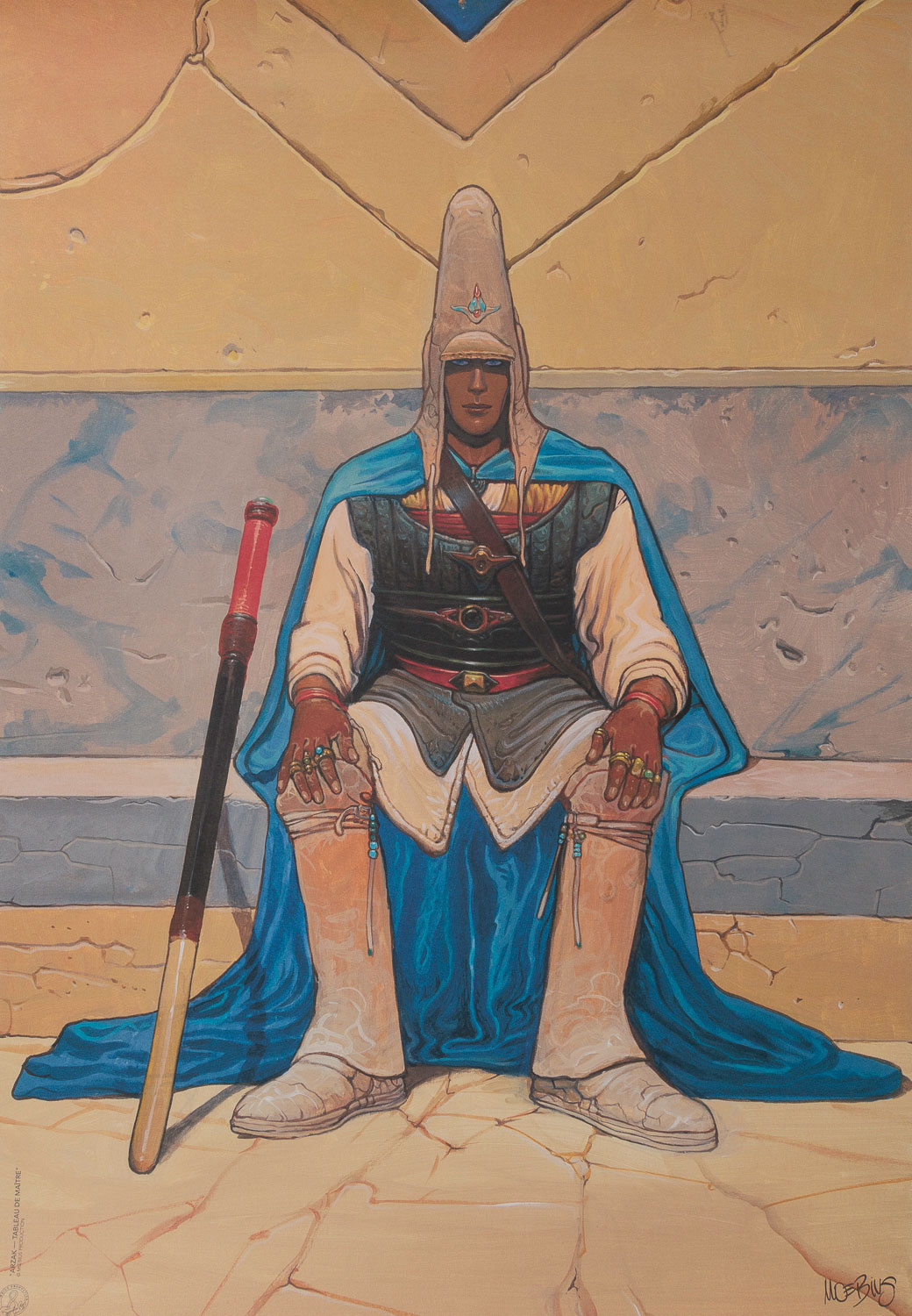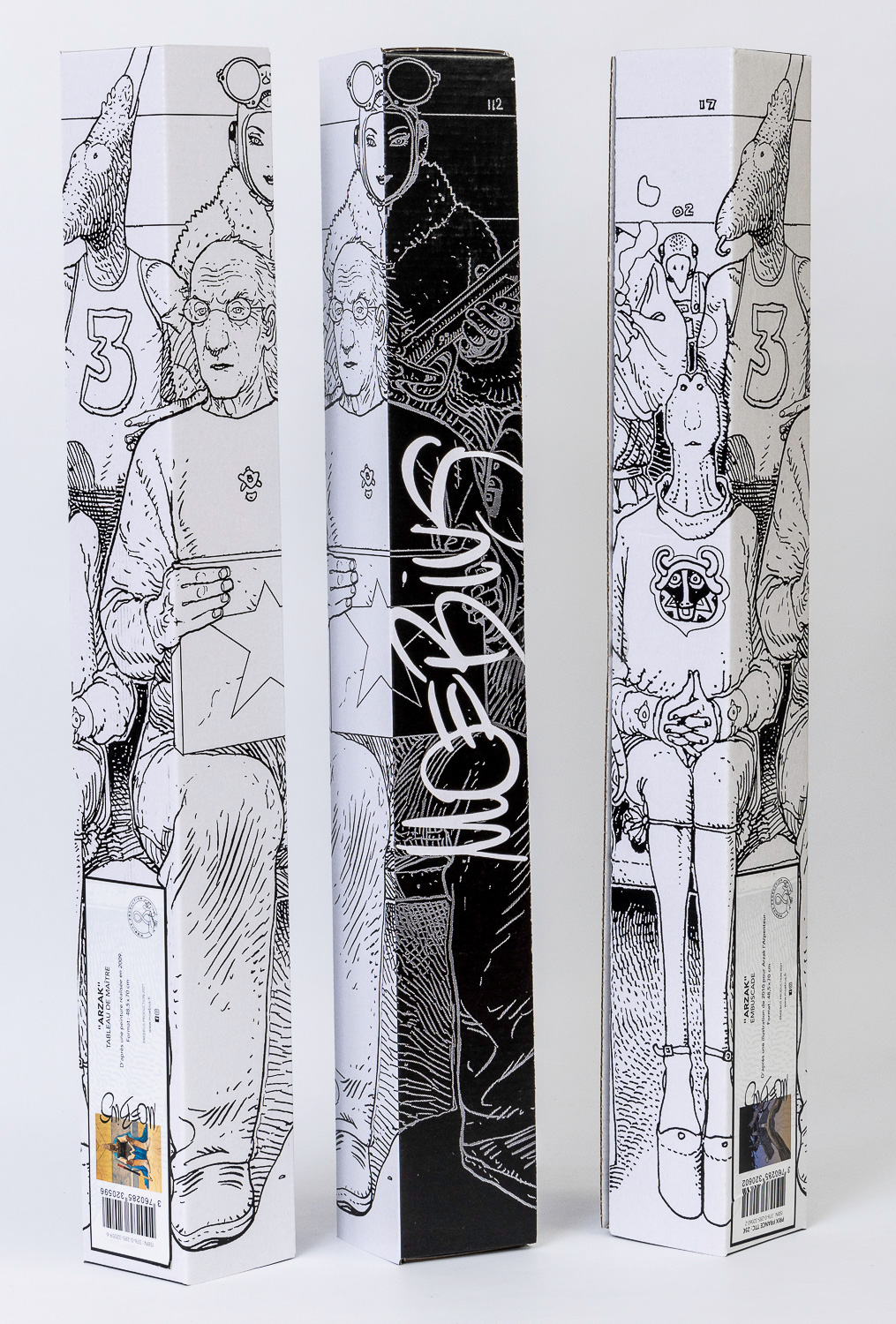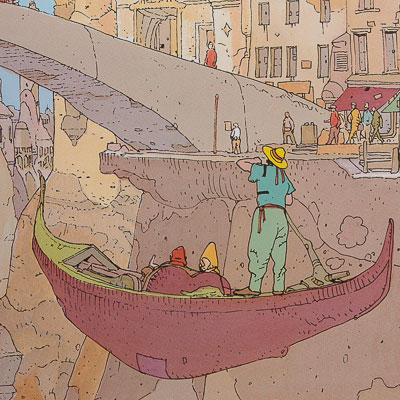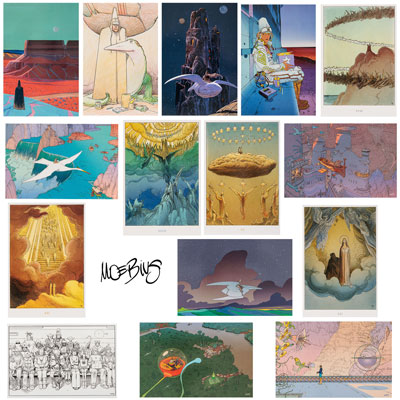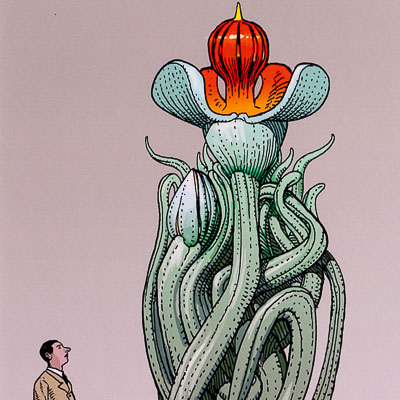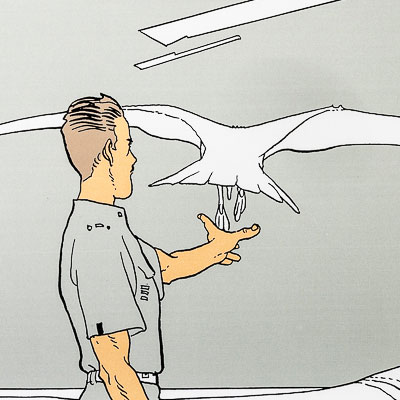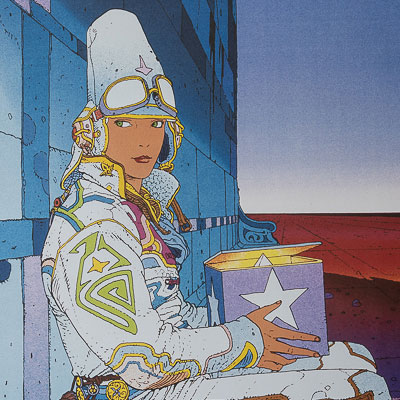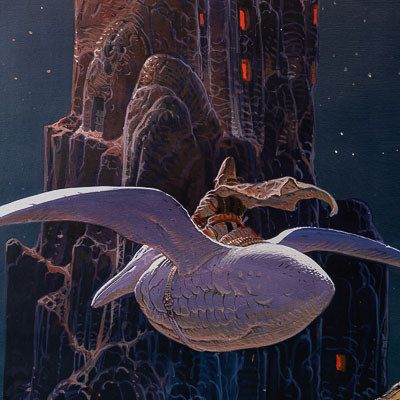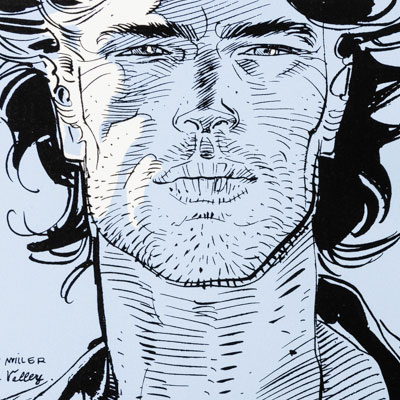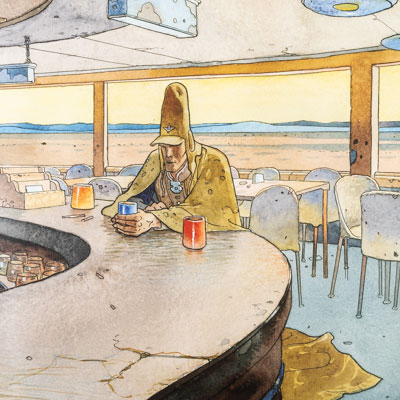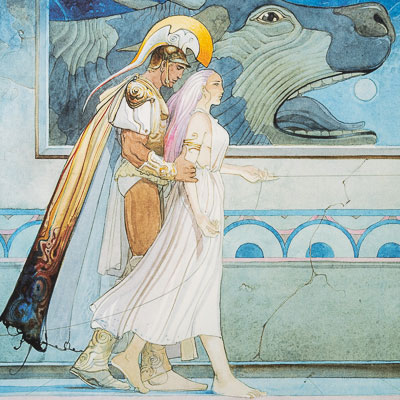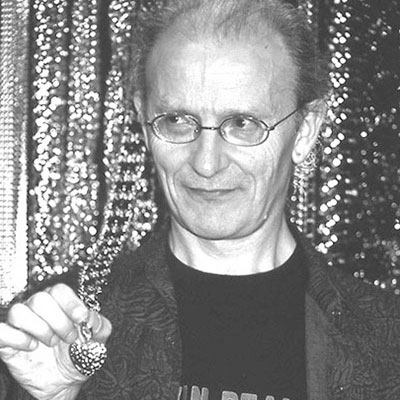Tel : (+33) 4 94 63 18 08
9am - 6pm from Monday to Saturday
All products (Moebius) Jean GIRAUD • Products of the serie Arzak
Jean Giraud, Moebius Art Print : Arzak - Embuscade
REF : MOEB-OFF-05
In stock
Only 1 in stock
Unavailable
29,00 €
Jean Giraud, Moebius Art Print : Arzak - Embuscade
Support : Thick Art paper Olin blanc 300g/m²
The Art Print is delivered in a rectangular tube decorated with black and white motives paying tribute to the artist.
This tube itself is inserted into another thick rectangular tube for safe transport.
Dimensions : 48,5 x 70 cm
"Arzak" is a science fiction graphic novel series created by Jean Giraud, better known by his pseudonym Moebius. It was published between 1977 and 1987, in the magazine Métal Hurlant and in numerous albums. The series follows the adventures of Arzak, a solitary and mysterious hero traveling through the universe on board his ship, the Falcon. Arzak encounters many colorful characters and faces dangerous missions, all while exploring deep themes such as identity, freedom, and the quest for truth. Moebius's style, known for its precise and detailed drawings, brings to life the unique and imaginative universe of "Arzak."
Discover the artist
GIRAUD (Moebius) Jean
Jean GIRAUD also known as Mœbius is a French cartoonist and screenwriter and illustrator.
Coming from a modest background, he grew up, raised by his grandparents, in the suburbs of Paris. It was in the early 1950s that he became passionate about drawing. His first sketches, mainly of cowboys and Indians, are the heroes who populate the images sent by Hollywood. His father made him discover Fiction, a journal devoted to the literature of the imagination (surrealism, science fiction), this will have a lasting influence on his readings and his universe!
He did Dupperé Applied Arts between 16 and 18 years before working as an illustrator for advertising. In 1956, he published Frank and Jeremie in the monthly Far-west. From then on, he devoted himself only to comics.
He spent 9 months in Mexico where his mother resided, where he met Jijé and fell under the spell of the desert landscapes that will be predominant in his visual universe. In 1962, he became Jijé’s apprentice and worked as an inker on one of the western series Jerry Spring: The Coronado Road, published in Spirou.
In the early 1960s, he worked with Mézières, then in 1963, Jijé recommended him to Jean-Michel Charlier who was looking for a cartoonist for a western series he began to write: Le Lieutenant Blueberry. First published in Driver, it is immediately successful. 25 albums will be released (from 1965 to 2005= and there will also be 2 derivative series: Marshall Blueberry (with William Vance and Michel Rouge) and Blueberry Youth (with Colin Wilson and Michel Blanc-Dumont).
During the 1960s, he also began to illustrate SF magazines and novels, under the name of Mœbius. This name will now serve him for all his work related to anticipation. With Jean-Pierre Dionnet, Philippe Druillet and Bernard Farkas, he founded in 1975 Les Humanoids Associés which will be at the origin of the creation of Métal Hurlant magazine, which will allow the birth of a new generation of comic books, such as Enki Bilal. For his part, Giraud takes the opportunity to publish underground SF such as the revolutionary Arzach or the famous Hermetic Garage. Metal Hurlant becomes the reference of a rock, punk generation, from May 1968 that no longer recognizes itself in a France that is slow to modernize!
These new publications allow Mœbius to cross borders beyond Europe (which is never easy for cartoonists) and make his work recognized in Japan and the United States. The proposals, particularly from Hollywood, will follow very quickly. It will first be the project, unfortunately aborted, of an adaptation of Dune by Jodorowsky, with the help of Dan O'Bannon, then Alien, the eighth passenger, with Ridley Scott (and still O'Bannon), which will be producted (also related to Giger work).
In 1986, Giraud moved to Los Angeles, founded a local publishing house, worked with Marvel Comics, illustrated a Silver Surfer story, worked with James Cameron on Abyss, but his work will not be retained for the director’s final vision.
During the 1990s, he participated in the creation of a Futuroscope attraction inspired by the Hermetic Garage, drew for a stamp issue by the Post Office, and took part in numerous exhibitions, including one that paralleled his work and that of Hayao Miyazaki.
He died on March 10, 2012, at the age of 73, leaving behind the orphan comic strip of one of his greatest reformers, one of his founding fathers !
